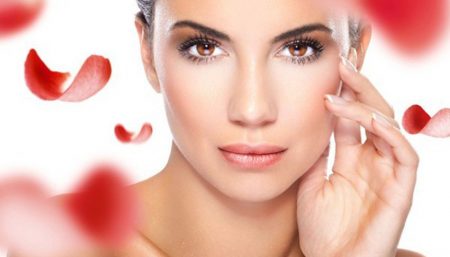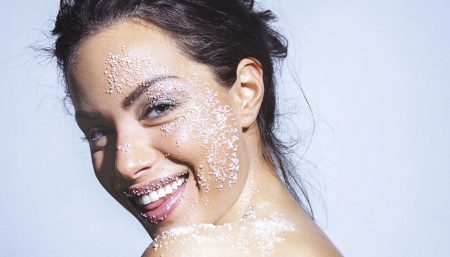Skin Care questions answered by Experts
1. Age spots
Q “I’ve noticed ‘liver spots’ appearing on the back of my hands. How are they caused – and how can I get rid of them? “
A Many people find these light-to-dark brown patches appearing on the back of their hands as they grow older. They can also appear on other areas, such as the forehead and temples. They’re caused by an uneven production of the tanning pigment called melanin in the skin. This can be caused by excess sun exposure, or merely highlighted by it.
You can use a cream containing an ingredient called hydroquinone, which works by penetrating the skin tissue to “dissolve” the melanin. Within six to eight weeks, your skin should be back to normal. However, you must ensure you use a safe level of hydroquinone – the recommended amount in a cream is a mere two per cent. Using a sunscreen on your hands on a daily basis can prevent these patches from appearing again.
2. Pregnant pause
Q “I’m pregnant and have developed patches of darker colour on my face, particularly under my eyes and around my mouth. What causes this?”
A This is called chloasma, or “the mask of pregnancy”. It’s triggered by a change in hormones at this time, and is made more obvious by sunbathing. Cover up under the sun and wear a sunblock to prevent the patches from becoming denser. It usually fades within a few months of having your baby. Chloasma can also be triggered by birth-control pills, but disappears once you stop taking them.
3. On the spot
Q “I suffer from oily skin, but find blemish creams too drying. What can you suggest?”
A Many women have skin that has dry patches as well as blemishes. The solution is to choose an antibacterial cream that will kill off the cause of your blemishes, while soothing the skin around them. This means you won’t be left with dry patches of skin as well as blemishes.
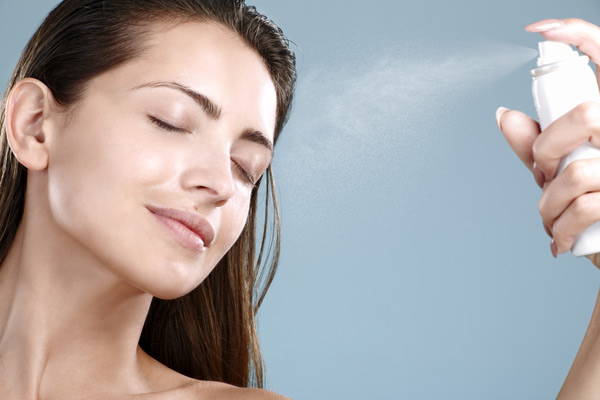
4. Treatment sprays
Q “I find body lotions too hot and sticky to wear after bathing. Is there anything else I can try?”
A There’s lovely new trend for body treatment sprays, which combine the moisturizing and toning properties of a body care product with the fragrance of a traditional perfume. This means they’ll make you smell beautifully fresh as well as lightly moisturizing your skin. Many of the large perfume companies now offer a choice of these products.
5. The throat vote
Q “The skin on my neck looks grey and dull.Are there any special treats to use?”
A Necks can quickly show the signs of ageing. This is mainly due to the fact that they have a lack of sebaceous glands. Using a creamy cleanser can help. Massage in, leave to dissolve dirt, and then remove with cotton wool (cotton) pads. Dull grey skin will benefit from regular exfoliation – scrub briskly with a face cloth or soft shaving brush.
Grey lines on neck and throat can be bleached away by smoothing plain yogurt over clean skin. Leave on for about half an hour, then rinse away thoroughly with warm water. Boost softness by smoothing on moisturizer. There’s no need for a specialized throat cream – your ordinary one will do.
6. Beautiful back
Q “How can I get rid of the pimples on my back and bottom?”
A Because backs are covered up, and hard to reach, they’re prone to breakouts. Keep yours blemish-free by exfoliating daily with a loofah or body brush to remove dry, flaking skin and superficial blemishes. For more stubborn pimples, try a clay mask to draw out deep-seated impurities. Smooth onto broken-out areas, leave until dry, then rinse away with lots of warm water.
7. Mole watch
Q “I understand you need to keep an eye on moles on your skin to guard against the risk of skin cancer.But what exactly should I be looking for?”
A Moles are clumps of clustered pigment cells that are nearly always darker than freckles. All changes in existing moles should be checked by your doctor. Any that cause concern will be removed and sent off for analysis. You should also check moles yourself once a month. Try the following A, B, C, D. Code: check for A ( asymmetry); B( border irregularity); C( colour change); D( change in diameter).
8. Shadow sense
Q “I’ve got dark shadows under my eyes.What’s the best way to deal with them?”
A Dark shadows can be the result of a variety of causes, including fatigue, anaemia, poor digestion and lack of fresh air. They can also be hereditary. If in doubt, consult your doctor for advice. Take steps to ensure you’re cutting out the causes – for instance, getting a good night’s sleep, and keeping to a low-fat, high-fibre diet.
For special occasions, you can bathe the area with pads soaked in ice-cold water for 15 minutes. This will help lessen the shadow effect temporarily. Or cover shadows by dotting on some concealer.
9. Brown baby
Q “Is there anything I can do hang onto my tan for longer?”
A Just when you want to show off a golden tan, it begins to peel away. This is because your skin is especially dry after sunbathing, and so it sheds its old cells more quickly. You can prolong the colour for a little while longer by applying lots of body lotion in the morning and evening. Apply it while your skin is still damp to make it extra effective. Apply a little fake tan every few days to keep your colour topped up. Or better still, protect your skin by not tanning at all.
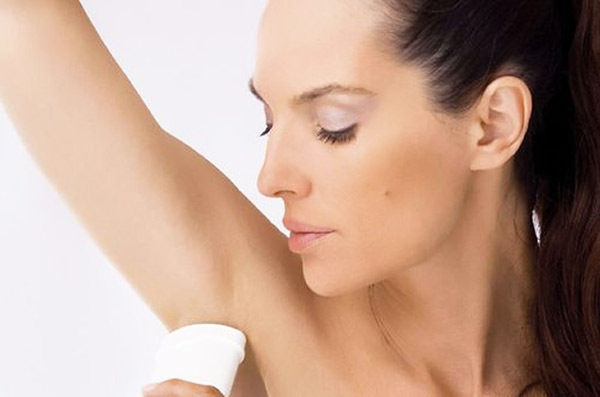
10. Sticky situation
Q “I exercise a lot, and find body odour a problem. How can I prevent it?”
A Sweating is your body’s natural cooling device. Sweat itself has no odour, but it begins to smell when it comes into contact with bacteria on the skin’s surface. Keeping underarms hair-free can help prevent sweat from being trapped.
Opt for an antiperspirant deodorant rather than just an ordinary deodorant alone.
The antiperspirants help prevent sweating, while the deodorant helps prevent odour. As a result, a product with the combination of the two is highly effective. Also, try to wear natural fibres next to your skin because they help you to stay fresh for longer.
11. Massage magic
Q “I had a facial massage in a beauty salon.Is there a way I can give myself one at home?”
A Yes, just like every other part of your body, your face will look better after a bit of exercise, and a massage is the ideal way to give your complexion a workout.Pour a few drops of vegetable oil into the palms of your hands and smooth it onto your face and neck.Make sure your skin is damp, as this makes the oil go on more easily.
Then follow these steps:
- Use the pads of your fingers to stroke upwards from the base of your neck to your chin.
- Continue with long strokes up one side of your face, then the other.
- Now go around your nose and up towards your forehead.
- When you get to your forehead, stroke it across from left to right using one hand.Finish off by gently drawing a circle around each eye using one finger.
12. Stretch marks
Q “Is there anything I can do get rid of the stretch marks that have appeared on my tummy, breasts and thighs?”
A Stretch marks are a sign of your skin’s inability to cope with the rapid expansion of flesh underneath.The collagen and elastin fibres underneath actually tear with the sheer strain of it all.They usually make an appearance in times of rapid weight gain, such as puberty and pregnancy.They look quite red when they first appear, although you can take heart that, with time, they fade away to an almost unnoticeable silvery shade.
There’s nothing you can do once you’ve got them, except wait until they start to fade.However, keeping your skin well moisturized can help guard against them.Apply body lotion after a bath or shower, and give it plenty of time to sink in before dressing.Finally, an application of fake can be a good disguise for stretch marks that might be on view.
13. Night watch
Q “My dry skin needs night cream, but I seem to lose most of it onto my pillow.Any solutions?”
A Put a little night cream into the palm of your hand, then gently rub your hands together. The heat created will help liquefy the cream and make it more easily absorbed.
Gently massage it into your skin, and you’ll find it sinks in better. Another method is to place the cream in a teaspoon, and heat gently over a low gas flame on the cooker until just warm, before applying as usual.It sounds strange, but really works!
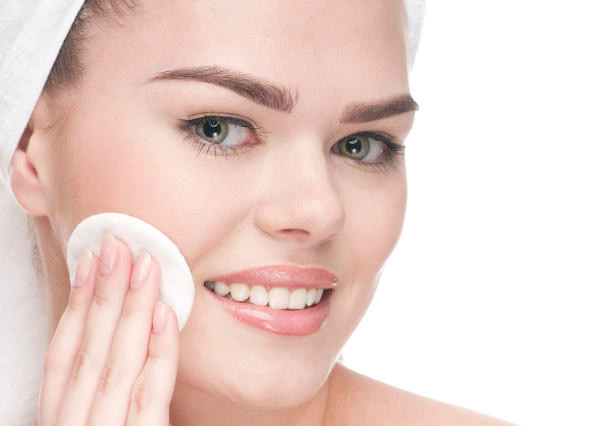
14. Polished perfection
Q “I spend a fortune on skin-care products, but resent paying for an exfoliater. Are there any alternatives?”
A Yes, here’s a good, cheap alternative to facial scrubs! After washing your skin, gently massage with a soft facecloth or natural sponge to ease away the deadsurface skin cells which can give your complexion a muddy look. Make sure you avoid ones with scratchy surfaces as they’ll be too harsh for your skin. If you have dry skin, massage a little cream cleanser onto damp skin, then rub over the top with your flannel. Rinse afterwards, then apply moisturizer in the normal way. However, it is essential to wash the facecloth after every couple of uses, and to hang it up to dry in between to prevent the build-up of bacteria.
15. Lip tricks
Q “How can I stop my lips getting so chapped and flaky in winter?”
A This three-step action plan will help.
-
Massage dry lips with a generous dollop of petroleum jelly.
Allow it to get to work for a couple of minutes to soften your skin.
Then, gently rub your lips with a warm, damp facecloth.
As the petroleum jelly is removed, the flakes of skin will come with it! -
Smooth your lips morning and night with a lip balm.
-
Switch to a moisturizing lipstick to prevent your lips from drying out during the daytime.
16. Red nose day
Q “It’s so embarrassing! My nose looks really red in the winter. What’s the best way to cover it?”
A Try smoothing a little green foundation or concealer over the red area before applying your normal foundation and powder. Although it sounds strange, the green works by concealing out the redness – leaving your skin looking a normal shade again.
17. Winter sun
Q “Someone told me you should still wear a sunscreen in winter. Is this true?”
A Yes, if you want to guard against the signs of ageing! Exposure to sunlight is thought to be the main cause of wrinkling, and the ultraviolet A rays that are responsible for this process are around every single day of the year. You don’t, however, need to use a suntan lotion- just choose one of the many moisturizers that contain sunscreens.
18. Lighten up
Q “My skin feels as though it needs a richer cream in the winter months, but I find most of them too heavy. What can you suggest?”
A Choose the level of moisturizer that feels right for you. Just because a moisturizer is heavier, it doesn’t necessarily mean it’s more effective. You can help seal in extra moisture to your skin by spritzing your complexion with water before applying it. Also, choose a nourishing foundation or tinted moisturizer to ensure your skin stays smooth and soft all day long. You can help counteract the drying effects of central heating by placing a bowl of water near the radiators to replenish moisture levels in the air.
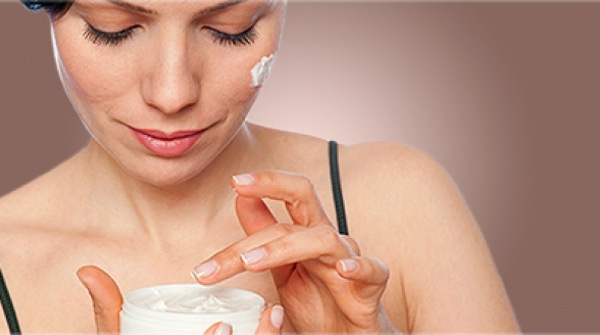
19. Water factor
Q “I like the feeling of water on my face, but I find soap too drying. Should I switch to a cream cleanser instead?”
A If you have dry skin, it’s generally better to use a creamy cleanser, which you apply with your fingertips and remove with cottonwood (cotton) or soft tissues. This is because it will prevent too much moisture from being lost from the surface of your skin. However, normal and oily skins can still happily use water – but switch to a facial wash or wash-off cleanser instead. They’re specially formulated to be non-drying, while still getting your face clean – and you can splash with water as much as you like!
20. Sensitive issue
Q “Why does my skin feel more sensitive in winter than summer?”
A Eight per cent of women claim to have sensitive skin-which tingles, itches and is prone to dryness. It can be aggravated by harsh winter weather, such as the winds and cold, because this breaks down the natural oily layer which protects your skin. Milder summer weather doesn’t tend to be so hard on the skin. The best way to cope is to moisturize regularly with a hypo-allergenic cream that is specially formulated for sensitive skin.
Disclaimer
The Content is not intended to be a substitute for professional medical advice, diagnosis, or treatment. Always seek the advice of your physician or other qualified health provider with any questions you may have regarding a medical condition.



